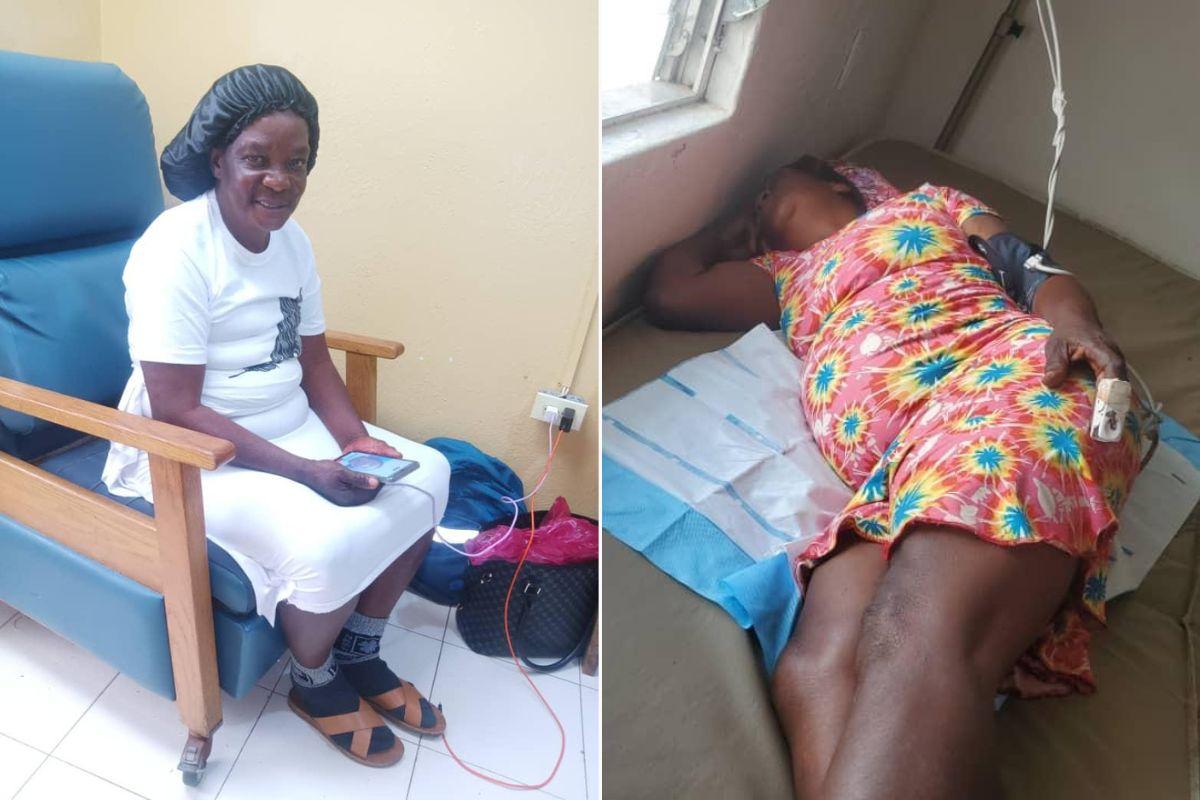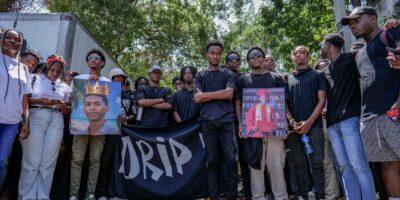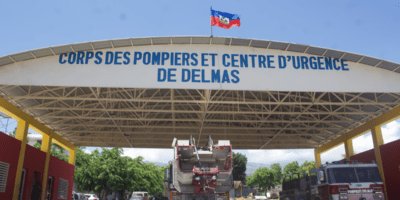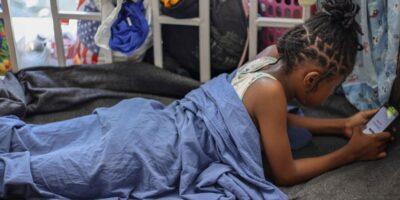Over the last 60 years, Haiti’s politicians count among some of the richest, while the people remain the poorest in the hemisphere. Money that should have been used to equip and train the police has been misused
“They killed her, cut her head off, and set her body on fire,” the person said. As I hung up the phone, stunned and seething, I had already heard rumors that no one had seen or heard from her for months. Her name is—was—Lamercie Louis. She is—was—my aunt. In a video they shared between February and March, I didn’t really have the heart to watch it, but I saw her face briefly.

Dr. Claude Louis, accompanied by his two aunts.
She had been held hostage, along with other elderly people, at the Qui-Croit school since January 2025. The second video I was forwarded showed an emaciated older man whose wife, in her 80s, had been shot in cold blood in front of him a few days prior, repeating on camera: “They have been treating us really good here, no one hurts us,” while I noticed one of the guys with a high-caliber weapon pacing around.
A few minutes earlier, before I placed the call during a short layover at the Ronald Reagan Washington Airport, in my ears, an overused Sony headset read, with a soft and deep voice, To Repair the World by Paul Farmer: a collection of essays chronicling his work in Haiti. Paul questioned why he was born into a life of abundance, while loving people in Haiti, had pretty much nothing.
In 2017, she came up after I was done with clinic, pulled my right hand, and said: “Ou konnen se ou ki mouche m, se ou k pitit mwen…vin pou w wè kote mennaj ou ap domi” (“You already know that you are both my husband and my son, come in and see in what condition your darling sleeps at night”). “I get soaked at night when it rains,” she added. I swear I thought she was joking. I poked some jokes and told her that she was still so funny. She changed her tone and said, “Yes, you send me money and help, but I wanted you to see it yourself.” I became numb. I couldn’t cry. Like Paul, I thought: What did I do to deserve the life I have, while she lived in such indignity? At least, for her last seven years, she had a decent house.
When the gangs attacked Qui-Croit and its surroundings and started to burn and kill, a group of older church widows started to pray and refused to flee, not knowing why, but also not knowing where to go. Among them were my mother and another aunt, my father’s twin, Léanne Louis, who was half-blind. Eventually, they realized they would die, and with rumors of the gangs setting fire to houses with people inside, they took the road. But they were too old, too fatigued, and too slow. Léanne fell into a ditch and had to be left behind. She died of starvation. Regarding her body, your guess is as accurate as mine. Her husband, Thelusma Rosilus, died of cholera in 2010, and she was likely still waiting for some of the compensation from the United Nations for that epidemic—just like the families of the 12,000 victims.
My mother kept pushing. She stumbled on the dead body of an older man from church. She got shot at, played dead lying down in the dark until the gangs left, then got up to continue. She spent two and a half days in hiding without food or water. When her body was about to give up, a man miraculously found her in the bushes and carried her to a point where I could send someone to pick her up and take her to Fermathe Hospital. She was limp and in acute renal failure, but she is safe and sound today. Rumors reached me that my mom had been set on fire by the gangs while she was praying with some other ladies at her house. Friends in Haiti started contacting me with condolences. When I heard her voice, I could not stop crying, and with a weak voice she said, “Don’t cry, young man, I am alive. It’s not my time yet. God saved me”

Claude Louis’s mother: in the photo on the left, just after her arrival at the hospital; in the one on the right, after the beginning of her treatment.
Weeks ago, I counted 51 vehicles in the convoy of the de facto Haitian Prime Minister, with hundreds of police, while ordinary Haitians around the country die because there is not enough police, they say. In Qui-Croit, Kenscoff, there were rumors that the area was in the strategic plan of the gangs and those they work for, but no preventive measure was taken. Most of the gangs who invaded Kenscoff had escaped the penitentiary in Port-au-Prince weeks after they threatened to do so.
When they did, there was no resistance whatsoever from the legal forces. More than 2,000 criminals were purposely released—and still remain free today. The country still has a chief of police, a prime minister, a ministry of interior, another of justice, the impractical Kenyan force, and a so-called rotating Presidential Council of nine members—a circus orchestrated by CARICOM and the international community, including the US. The gangs have been institutionalized by the government and the rich of Haiti, and it’s a very easy fix if they address the source of the problem. There has been very little exception among Haitian politicians in the last four decades I’ve been alive—most are prone to destruction to stay in power.
Not long ago, on Facebook, I noticed a Haitian politician with some Gucci shoes posting with two young kids—while I need money to feed 120 of them, now homeless. Over the last 60 years, Haiti’s politicians count among some of the richest, while the people remain the poorest in the hemisphere. Money that should have been used to equip and train the police has been misused. There is no plan to re-establish safety, as the gangs are gaining more territories with no opposition whatsoever.
Haiti does not have a gang problem—it has a justice problem, one that fails to bring into custody those (the oligarchic elite and politicians) who arm them, and fails to stop the influx of weapons from the US and the Dominican Republic. The gangs are at their disposal for political reasons, and since they have no soul, and their nervous system is cooked, their first pair of cranial nerves are impaired—therefore they can’t smell the decomposed bodies. Because they have no soul, they can’t see the suffering. Haitians have become prey in a jungle where predators are chosen based on the presence of an extra Y chromosome linked to criminality.
In the name of the newborn in Kenscoff thrown in the fire by a gang member,
In the name of the eleven people killed in one single house in Tiplace, near Qui-Croit,
In the name of those 120 (mostly elderly women) killed in Cité Soleil because the chief gang accused them of being sorcerers who killed his sick child,
In the name of those two young female scholars and their mother who were killed then burned on their way to church,
In the name of all those who die because General Hospital has been closed and burned by those gangs,
In the name of my aunts and every voiceless victim, I will raise my voice to ask for JUSTICE.
By : Dr. Claude Louis
► AyiboPost is dedicated to providing accurate information. If you notice any mistake or error, please inform us at the following address : hey@ayibopost.com
Keep in touch with AyiboPost via:
► Our channel Telegram : Click here
►Notre Channel WhatsApp : Click here
►Our Community WhatsApp : Click here







Comments